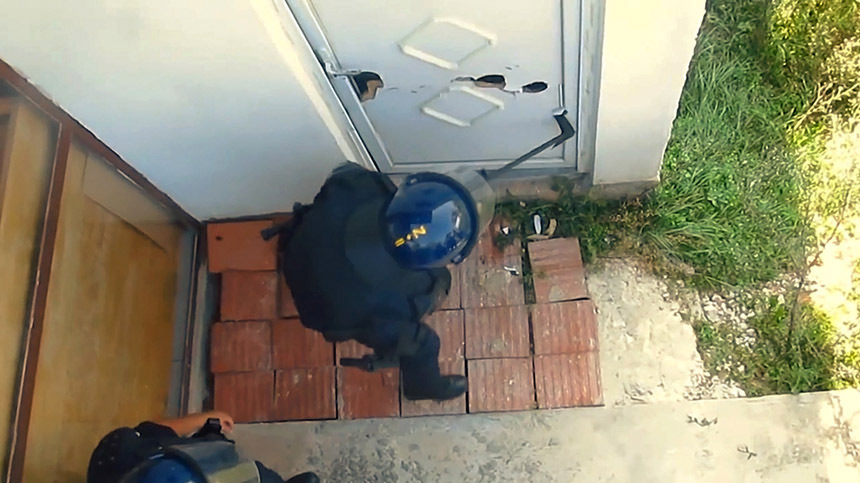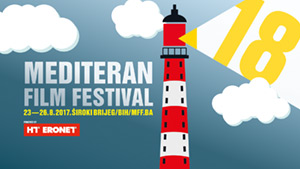
11/08/2017
Home authors at Mediterranean Film Festival
Besides the competition program in feature and short documentary selection at this year's Festival, home authors will also present their documentary films to the audience.
The audience will have the chance to see the films "The White Road", "Home" and "23 Grams", which were created by the team from the Kadar production, and the film "Stolen Childhood", directed and written by Pavao Crnjac.
THE WHITE ROAD
director: Zdenko Jurilj
screenwriter: Zdenko Jurilj
cameraman: Antoni Ćorić
editing: Tomislav Topić
producer: Tomislav Bubalo
country of origin: BiH / B&H
year of production: 2016.
duration: 80 min.
At the end of 1993, as a result of severe war conflicts between the Army of B&H and HVO, around 80.000 citizens of Central Bosnia were completely surrounded by the armed forces. They started to die from starvation, diseases... After 12 days of journey through the gun-lines, the convoy of about 90 trucks arrived to Nova Bila. 10 to 15 thousand people took part in the organisation of the biggest humanitarian action after the Second World War. On December 22, 1993, on their way home from Nova Bila, the drivers of the empty trucks were shot at. The driver Ante Vlaić was killed, and three convoy participants were injured. Just a few days after the White Road action, humanitarian corridors were created to help all the civilians in B&H, regardless of their nation and religion.
Festivals and awards
The film was screened in Nova Bila, Zagreb, Mostar, Osijek, Busovača, Tomislavgrad, Zenica, Posušje and Sarajevo within the BH program at Sarajevo Film Festival.
HOME
director: Zdenko Jurilj
screenwriter: Zdenko Jurilj
cameraman: Marko Mandić, N. Karalić ???
editing: Tomislav Topić
producer: Tomislav Bubalo, Vera Robić-Škarica
country of origin: BiH / B&H
year of production: 2017.
duration: 40 min.
Every twentieth family in Croatia looses their apartment or house due to incapability of paying the credit or the overhead expenses. The rigorous foreclosure laws have enabled the banks and other institutions an easier way of gaining a real estate. When the system fails, when a citizen has nowhere to turn to and when the unscrupulous administration dislodges them from their flats or houses, then the young activists arrive to help and with their bodies prevent the execution of eviction. The film has recorded the grievous scenes from the very places where the cordons of special police use force to drag away the children, women, the young and the old...whose one and only wish is to stay and live in their only home.
Festivals and awards
The film had its world premiere in the competition programme of Sarajevo Film Festival.
23 GRAMS
director: Robert Bubalo
director: Robert Bubalo
screenwriter: Maja Domić
cameraman: Vedran Šamanović
editing: Marijo Vukadin
producer: Robert Bubalo, Marijo Vukadin
country of origin: BiH, Hrvatska, Austrija / B&H, Croatia, Austria
year of production: 2017.
duration: 42 min.
A story about the boy who doesn't speak or eat and his parents who are every day troubled with the question – how to feed their son. The film was screened over a few years period, while his parents were hoping to get him to start eating. Finally, someone has to back down, but who – the parents or Borna?
Festivals and awards
World premiere.
STOLEN CHILDHOOD
director: Pavao Crnjac
screenwriter: Pavao Crnjac
cameraman: Pavao Vranjicani i Pavao Crnjac
editing: Miroslav Matanović
producer: Miroslav Matanović
country of origin: Hrvatska / Croatia
year of production: 2015.
duration: 90 min.
Pavao Crnjac, the author of documentary film Stolen Childhood, started to search for his missing uncle Ivo Papak in 1970, pursuant to his grandma Ruža’s stories. But in his search for the information about him he suddenly discovered Records about children with 28.000 names in Croatian State Archives in Zagreb. Browsing carefully through the records he found 700 cards with names and surnames of the children from Rama that were fostered in Zagreb. Basic information about the children were written in these cards: name and surname, name of their father, year and place of their birth, arrival to Zagreb and the addresses of the families where they were housed. Following the traces from these notes the author travelled around Croatia and B&H and searched for the survivors’ addresses. That is how he found over 23 persons who were fostered children from Rama, and today they are elders living with their families. These people were interviewed and recorded by Pavao Vranjicani and the interviews are exceptionally touching. The film was made on the basis of authentic family and historical photos, geographical maps, documents and graphs.
Festivals and awards
The film was screened in Zagreb, Prozor and Kutina.
